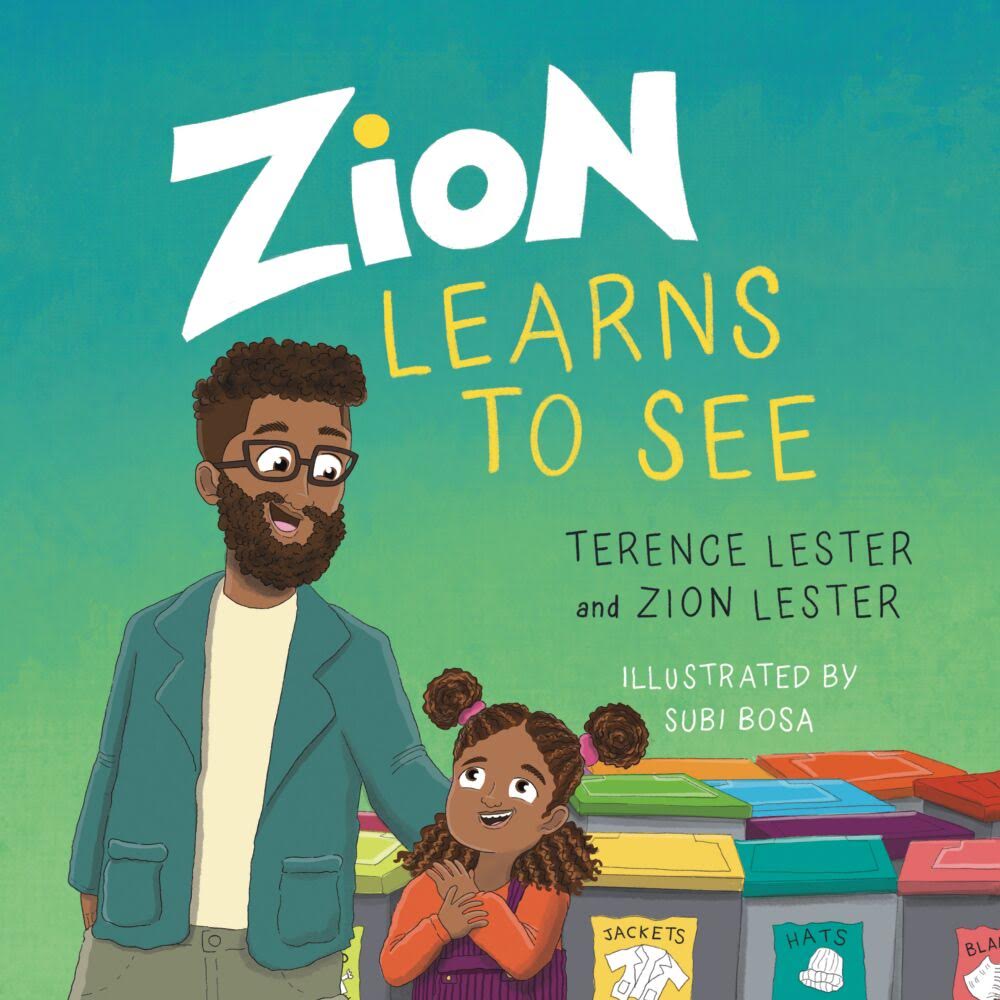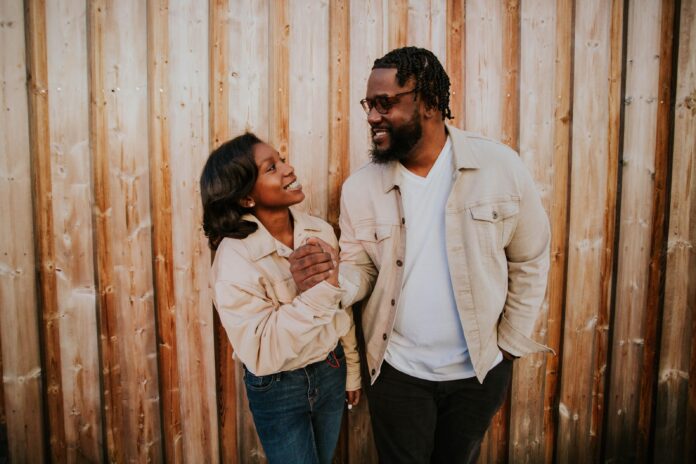Tell us more about who you are and what you do?
My name is Dr. Terence Lester, and I would say one of my life’s missions is to wake up every single day and work to ensure that no one is invisible. That takes form in a number of ways including community work, speaking, writing, and through an organization that I co-founded with my wife Cecilia Lester called Love Beyond Walls. I believe the work that we do through our organization has given us a unique space to educate people on the realities of those who are unhoused and facing poverty but also mobilize people around these specific causes through the idea that we can all do something to affirm the inherent dignity of those who are marginalized and join the life-changing work of being in proximity to people who are excluded. Lastly, I am a PhD researcher and seek to use my research to educate, advocate, and use my voice to reframe and humanize the stories of those who are unhoused and poor through a lens of empathy and belonging—in order to create tangible ways to equitably create access for these communities and solutions.
What inspired your new book “Zion Learns to See?”
When my daughter was in the second grade, she became really fascinated with community service because she saw my wife and I doing work in the community through Love Beyond Walls, and decided to take it upon herself to speak with her second-grade teacher about doing a project that would support others who were students in her school experiencing homelessness. Her teacher took her up on that and immediately allowed her to launch a campaign where she mobilized an entire school of students to raise change to support those who are unhoused. This established a deeper relationship between my daughter and I where she would accompany me to work to learn about what it means to affirm the dignity of those who are unhoused and see people as worthy regardless if they have an address. Out of this real relationship, we started dreaming about a way to educate children about two things:
1. The importance of seeing everyone as worthy to belong while embodying compassion, and
2. That there is really no age limit when it comes to serving and doing the work of community service—even if it is a former second grader who wanted to do something that impacted some of her peers that might also be unhoused.
The book is a reflection of our shared experiences and the conversations we’ve had about helping others and recognizing the inherent worth in every person.

Why was homelessness a topic that you wanted to address in this book?
Homelessness is a critical issue that often gets overlooked often because it is thought or seen that only adults experience this issue. But, research shows that one of the largest populations of people experiencing this plight are children and young adults. These are children who show up in schools who might not have a change of clothes, miss meals, live out of cars with their families, have run away from home because their family disowned them as a teenager, and more. When parents discuss these types of topics with their children, they equip them to take that compassion to school knowing that their child might come across other children and students in their school that might be wrestling with homelessness.
Additionally, what better way to show up in the world than equipping their child to be empathetic in a world that is set on stigmatizing those who are unhoused and excluding them. And, by addressing it in a children’s book, we can partner with parents to cultivate empathy and awareness from a young age, encouraging kids to see and respond to the humanity in everyone they meet.
It’s essential to break down stereotypes and misconceptions about homelessness early on because by educating children, we hope to contribute to building a generation that is more compassionate in addressing social issues.
What are the top 3 takeaways you want kids to get from this book?
We believe that there are three takeaways in this book that can become transformative for children:
- It gives children the ability to understand that every person deserves to be seen and valued regardless of their home status. This awareness can lead to raising children who become empathetic leaders.
- It gives children an opportunity to see how they can make an impact even at a young age, and the importance of compassion and service to others and the world. This can cause children to realize that even small actions can make a big difference in someone’s life or the world.
- It gives children the ability to make a positive impact, no matter their age. Children should feel empowered to help and know that their efforts are valuable and meaningful.
What are the top 3 takeaways you want parents to get from this book?
We believe that there are three takeaways in this book that can become transformative for parents:
- It can help parents understand how to take really complex subjects and talk to their children about them.
- It can help parents think of creative ways with their children to serve the community around them through volunteering or projects.
- It can create a deeper relationship between the parent and child by finding unique ways to serve together.
Who is Dr. Terence Lester as a Father?
As a father, I think this is my greatest accomplishment is being a present father. I realize that my presence is a powerful reminder for my children them as they grow up in the world that will try to remind them that they are not worthy.
Therefore, I talk to my children every single day and tell them that I love them, remind them of their worth, and call out things in them that are good. I do this not to reward them for achieving things but because children should feel support apart from performing or achieving things.
I know this also has the power to deepen my relationship with them and let them know that I love them very much—because it has been said that children spell love, TIME.
I also am intentional about creating spaces where my children can experience joy with me, laugh with me, and just experience love from a father without anything attached to that. I truly believe that my greatest investment in them is not just the wisdom that I get to pass along from my mistakes, but also the joy that I get to pass along to them to remind them that they are safe in their family and loved by their father.
Lastly, I believe in teaching my children about history, being vulnerable with them about the things I know but also creating opportunities where we can learn Black History together. I also believe in teaching them from my vulnerabilities, and I strive to lead by example, showing my children the importance of compassion, empathy, and active service in the world and love getting them involved in our community work and teach them to see and value every person. Fatherhood for me means nurturing not just their minds but their hearts, guiding them to be kind and responsible people.
This is who I am as a father.
How has being a Girl Dad changed your life for the better?
Being a ‘Girl Dad’ has deepened my understanding of what it means to help my daughter find her voice, own her truth, and realize how powerful she is as she gets older. In a world that tries to silence women, control their decisions, and devalue them, being a Girl Dad has made me an advocate for the human rights of women and to honor them.
Each day that I get a chance to be a father to my daughter, I am looking for ways to empower her and help her develop the courage to take up space as she gets older, and one way is by creating space and collaborating with her on projects that she cares about like our book, “Zion Learns To See.”
It has also taught me patience, compassion, and the importance of expression. My daughter has inspired me to be a better father and advocate, and constantly reminds me of being an ally to help create a world where she can thrive. Her life has inspired my life and work, bringing new depth to my activism and community service.

What’s one thing you’ve learned about yourself since becoming a father?
One of the things I have learned about being a father is that I love being a father, and I get to shape the world through how I raise my children and how I support who they will ultimately become in the world.
I have also learned that the greatest lessons often come from my children. Their perspectives and questions have challenged me to grow and to constantly strive to be a better person and father. Fatherhood has taught me humility and the importance of leading with love and understanding and has also reinforced the value of being present and actively engaged in their lives, to build a deep and meaningful connection with them. Both of my children are my heart.
Tell us more about Love Beyond Walls and the work that you do?
Love Beyond Walls is a movement birthed out of the hope that love is greater than walls. Walls exist more than ever in our current society. We looked around and saw a nation building higher and higher barriers between one another. These walls separated people into different classes, sexes, races, and everything in between.
One of the most distinguishable characteristics about our organization is our focus on telling the stories of the unseen and building relationships with people as a way of walking with them out of poverty and homelessness. We are committed to the people that the world passes by because we believe that the people struggling with poverty and sleeping on the streets have lives and stories that are just as valuable as ours.
We mobilize communities to take action through various campaigns, providing resources, access to housing, recovery of identification cards, reunifying with family, and building empathy towards those who have been excluded due to social stigma. We have built tiny homes, created hygiene stations, showers, a museum, and educational programs to humanize and empower the underserved. Through storytelling and advocacy, we aim to humanize the struggles of the unhoused community and inspire collective action to address these issues.
Define what “Legacy” means to you?
To me, leaving a legacy means leaving an impact in the hearts and relationships of people that you have established starting with your family, children, then moving to your community and those who have been impacted by your service.
It means that your lived values and vision will continue to live on through those people and spaces. It also means making a mark through the way that you lived your life while also creating a world where future generations are more empathetic, inclusive, and committed to justice because of how you showed up in the world.
Lastly, I believe that legacy is also about building contributing to the fabric of social change for those who have been marginalized by oppression and injustice.
How can people purchase the book and follow you for more updates?
People can purchase “Zion Learns to See” through major book retailers and follow our work on social media platforms and at @LoveBeyondWalls, @imterencelester, and @zionjoylester on social media and visit our websites lovebeyondwalls.org, terenclester.com, and zionjoylester.com for updates and ways to get involved. We regularly post updates, share stories, and provide resources for those interested in our mission.





